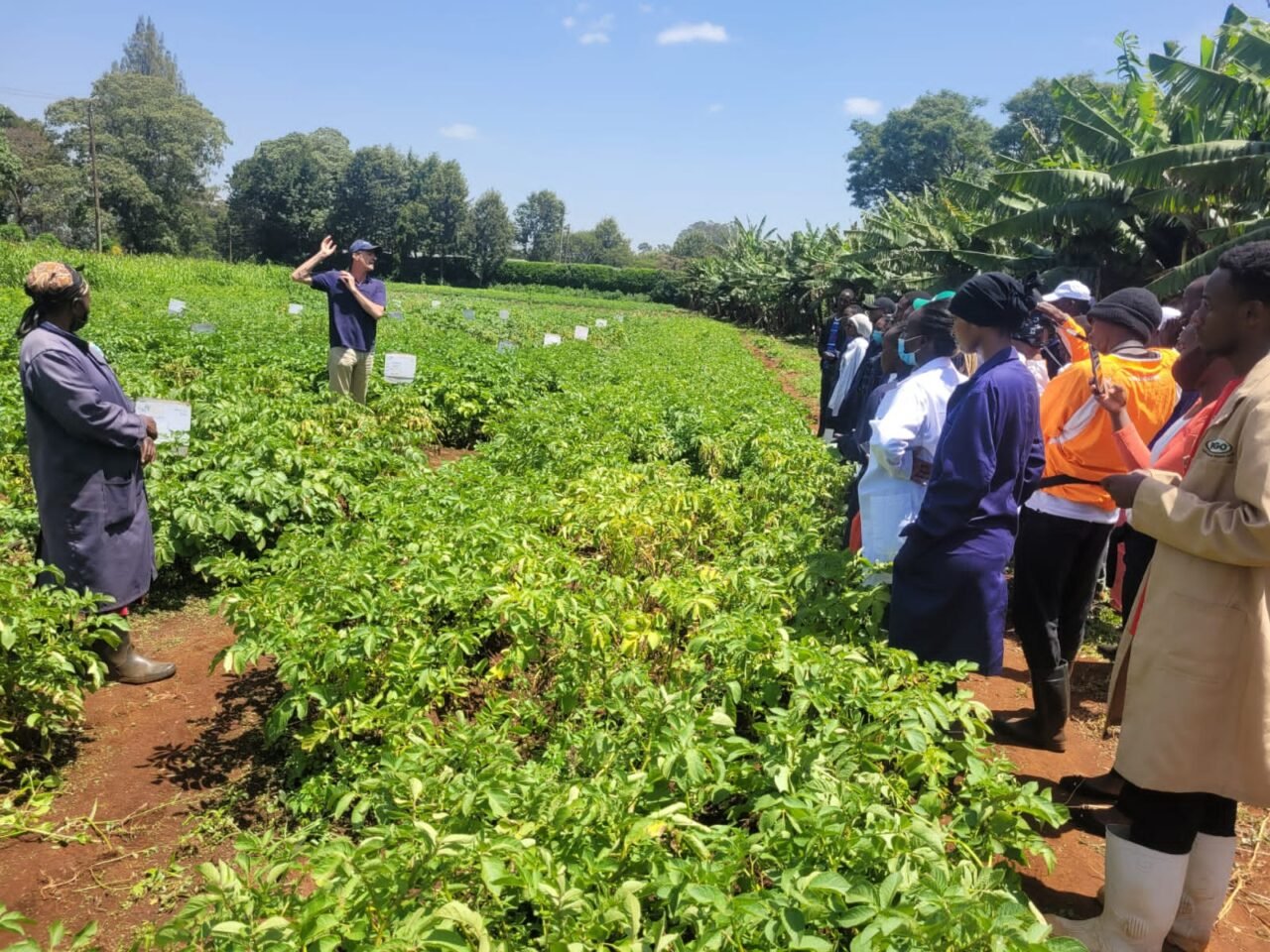New resistant potato varieties offer hope against PCN in Kenya
Kenya’s potato farmers now have fresh hope against the devastating Potato Cyst Nematode (PCN), as researchers introduce new resistant varieties and promote sustainable management practices through NemAfrica’s pioneering work
By Benson Ltamely
info@smartfarmerkenya.com
First detected in Nyandarua County in 2015, Potato Cyst Nematode (PCN) has quickly become one of the most serious threats to potato farming in Kenya. The pest, caused by two species Globodera rostochiensis and Globodera pallida, attacks potato roots, stunting plant growth, reducing tuber quality, and leading to yield losses of up to 80 per cent.
According to the International Centre for Insect Physiology and Ecology (Icipe), continuous potato cultivation on infested fields could cost the country nearly $480 million every year, worsening the risk of food insecurity.
Interventions
For the past decade, NemAfrica, a joint laboratory between the International Institute of Tropical Agriculture (IITA) and Icipe, has been at the forefront of nematode research and management in Africa. Co-led by Dr Danny Coyne and Solveig Haukeland, the lab unites nematology experts to provide solutions for farmers battling invisible but devastating root pests.
Dr Coyne explains that the biggest barrier has been lack of awareness. “Farmers and even many agricultural staff often don’t know about nematodes, so they battle the symptoms of low yields instead of the cause, which are the pests themselves,” he said in a dispatch to the media.
Building Resistance and Expertise
NemAfrica has recently introduced two new potato varieties in Kenya that are resistant to PCN. Developed naturally by breeders in Scotland, the varieties have proven durable in trials. However, Dr Coyne cautions that nematodes can evolve.
“The resistance works well, but it’s always possible for resistance-breaking populations to develop. Managing nematodes is an ongoing battle, as it is with other pests and diseases,” he noted.
He also stressed the need to train more nematologists. With very few specialists across Africa, he recommends integrating nematology into undergraduate agriculture and biology programmes to build future expertise.
Barriers to adoption
While resistant varieties are promising, Dr Coyne highlights challenges that could slow adoption among smallholder farmers. These include lack of awareness about nematodes and resistant varieties; consumer preferences including taste, colour, and texture of new varieties may not align with market demands and their economic value. If resistant crops fetch lower prices, farmers may hesitate to plant them.
“Adoption and acceptance of new varieties relies on the combination of several preferred traits, including agronomic traits,” he observed.
Agroecological practices
Beyond resistant crops, Dr Coyne advocates for sustainable management practices that include crop rotation and intercropping and use of cover crops and antagonistic plants that suppress nematodes.
However, he admits that these practices are not always fully effective since multiple nematode species often occur simultaneously in soils.
Optimism
Despite the threat, Dr Coyne is optimistic. He believes that with a combination of resistant varieties, better awareness, sustainable practices, and investment in research, Kenya and the wider East African region can contain and even eradicate PCN.
“Managing nematodes is a long-term battle, but with more resistant crops and informed farmers, we can reduce their impact and protect food security,” he said.



